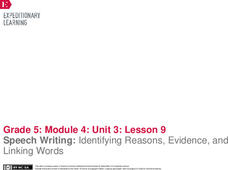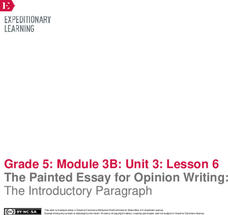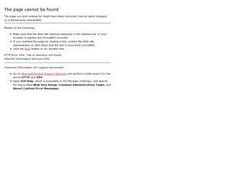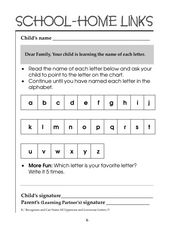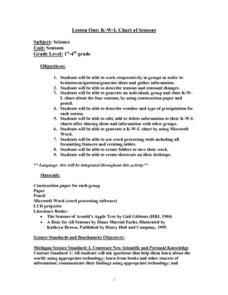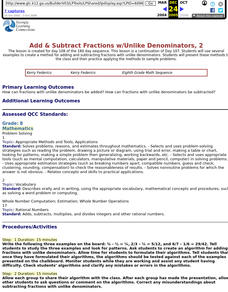Curated OER
Atlantic Basin Hurricane Tracking Chart
In this science worksheet, students look for the location of various storms that develop in the Atlantic Ocean with this hurricane tracking map.
Curated OER
The Pilgrims
Students use distance measuring tools to follow directions and chart the path the pilgrims made from Plymouth, England to Boston, Massachusetts. In this Pilgrim voyage lesson, students use a map to chart the distance traveled by the...
Curated OER
Meiosis and Sexual Reproduction
Eighth graders are able to define meiosis. They are able to compare and contrast meiosis and mitosis. Students are able to state the phases of meiosis. They complete a K-W-L chart on meiosis and mitosis. Students talk about meiosis...
Curated OER
Solar Matters II
Students research solar energy. In this solar energy lesson, students construct a KWL chart and research solar energy through various websites and related readings. Students complete a science journal page as an assessment.
Curated OER
Who Eats Who?
Students recognize that some animals eat plants, some eat meat and some both. For this who eats who lesson, students chart animals in a food chain. Students research information from reading articles. Students chart what animals eat...
Curated OER
Babylonia
In this ancient civilizations worksheet, students respond to 5 short answer questions and complete a graphic organizer about Babylonia after they read the included selections.
Curated OER
You Be the Editor
Young editors work in teams to find all the errors in a text. They identify grammar, punctuation, and spelling errors. Use this activity to reinforce correct usage of prominent punctuation symbols, such as apostrophes and ellipses. You...
Curated OER
Alphabetizing
Typing is an essential skill in our day and age! Introduce your second graders to computer typing by teaching them the correct placement of the fingers on a keyboard. Then, they complete an assignment using the word processor.
EngageNY
Speech Writing: Identifying Reasons, Evidence, and Linking Words
Enjoy the view. Scholars continue viewing a video of an opinion speech, this time identifying the supporting evidence the speaker employs. After watching, they work in small groups on their shared writing projects, crafting a body...
EngageNY
The Painted Essay for Opinion Writing: The Introductory Paragraph
The answer is blowin' in the wind. Using the resource, scholars read and analyze a model essay about wind power. Next, they work in groups to write an introductory paragraph that expresses an opinion about the topic.
Curated OER
Soda Sales
Students are shown how to chart a supply demand curve, analyze information from a chart and send and receive information to participating schools by use of telecommunications (an added objective could be for fund-raising). They determine...
Curated OER
Writing Learning Logs
Students read a book about Abraham Lincoln. Using a log, they write factual information from the book. As a class, they discuss what they believe childhood was like in the middle to late 1800s. They fill out a KWL chart before beginning...
Curated OER
4.2: Exploring Rocks
Young scholars collect and look at rocks and write down information about them in science notebooks. They make comparisons and sort the rocks according to their properties, and then discuss their findings with their classmates and put...
Curated OER
What Do They Have In Common?
Fifth graders use a database to gather information on the United States last five Presidents. Using the information, they identify their similarities and differences and what characteristics made them a good leader. In further detail,...
Curated OER
Napier Rods
Napier Rods were created by John Napier, and are used to help with multiplication problems. The chart is very similar to a typical multiplication chart but has a unique history that learners may find interesting.
Curated OER
Prepare to Read Nonfiction
Students explore the components of a KWL chart as they examine the facts of a story about the Leaning Tower of Pisa. Vocabulary from additional stories is utilized to form antonyms and synonyms.
Curated OER
KWHL Jacob Have I Loved
Your class has just begun reading Jacob Have I Loved, and they're coming upon the fifth chapter. Pause their reading and have them complete a KWHL chart (not included) to detail what they've learned from the novel's beginning. An example...
Curated OER
After: A Study of Individual Rights
Use the dystopian novel After by Francine Prose to spark discussion about individual and student rights. Learners read the novel, evaluating how far a school can go to control its attendees. As they read, scholars fill out a chart...
Curated OER
Naming Letters School/Home Links
Send your kindergarten class home with this review sheet. They should read the name of each letter shown and point to it. Then have them identify their favorite letter and write it five times.
Curated OER
Five Big W's
Students develop summarization strategies by asking themselves questions as they read. They devlop these strategies help them develop better comprehension. Students goals for reading is comprehension. They explore helpful...
Curated OER
"All Men Are Created Equal"
Students identify the premise of the United States' Democracy. They list the major elements of the document. Students reflect on the inequalities of the late 1700's premise of other units. They complete a KWL chart about the Declaration...
Curated OER
Cells in Series and Parallel
In this cells in series and parallel activity, students connect dry cells in a series and in parallel. Students chart their observations in a given table. Students answer several questions demonstrating their understanding of cells in...
Curated OER
K-W-L Chart of Seasons
Students think about what kinds of clothing they are currently wearing and then think about why they are wearing these particular articles of clothing. They write what they already know about seasons and generate questions about what...
Curated OER
Add & Subtract Fractions w/Unlike Denominators, 2
Students use several examples to create a method for adding and subtracting fractions with unlike denominators. They present these methods to the class and then practice applying methods to sample problems.










